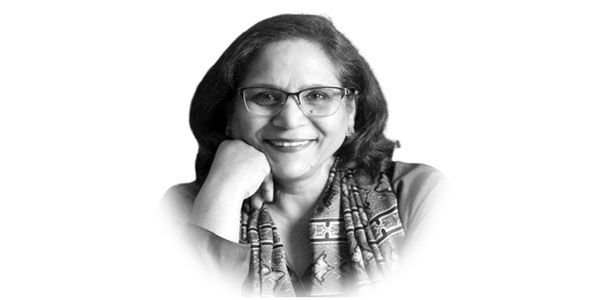Understanding citizenship
SOCIETY belongs to all of us.What we put into it creates what we get out of it. Citizenship education is, therefore, essential to give people the knowledge and skills to understand, challenge and engage with democratic society including politics, media, civil society, economy and law.
Democracies in particular need active, informed and responsible citizens who are willing and able to take responsibility for themselves and their communities and contribute to the political process.
Participation in civil society, community and political life, characterized by mutual respect and non-violence and in accordance with human rights and democracy are the essence of citizenship.
Ancient Greek city state or polis was thought to be an educational community, expressed by the Greek term “paideia”.
The purpose of political life was self-development of citizens. This meant more than just education for the Greeks.
It involved a deeply formative and life-long process whose goal was for each person to be an asset to his friends, family and most important, to the polis.
Ancient and medieval thinkers generally assumed that good government and good citizenship were intimately related, because a regime would degenerate unless its people actively and virtuously supported it.
The wisdom of the Ancient Greeks is still relevant however, becoming such an asset necessitates internalizing and living up to the highest ethical ideals of the community.
In recent years we have seen a dramatic degeneration of the political and social space in Pakistan.
A culture of intolerance of different and opposing viewpoints, impatience and resorting to verbal and physical abuse, particularly the weaponization of politics has reached dangerous levels.
We saw shameful behaviour and wild scenes in the National Assembly and again in the Punjab Assembly recently.
It is time for introspection at the national level to understand how and why our society has sunk to this unacceptably low level of decency and civility and draw out an effective plan of action to rectify this trend and restore respectability particularly to our political space.
Since the creation of Pakistan, it has been mired in problems like ethnic conflicts, language riots, political upheavals, corruption and poverty.
On top of these a clash of identity, in which successive governments debate whether the country should be “Islamic theocratic” or a “secular, democratic” has further complicated the already remarkable and complex issues facing the country.
Trapped by these fundamental controversies, we conveniently forgot that nations are built by educated and responsible citizens.
Somewhere in the 1980s we deleted from the curriculum the compulsory subject of civics, the core for development of the concept of citizenship and social consciousness of the youth to the extent that they become responsible citizens and agents of social change.
Reviving a vibrant citizenry is a prerequisite for the socio-economic development and to teach children at an early stage how to become responsible citizens,
Democratic societies have an interest in preparing citizens to rule and to be ruled. Civic education empowers us to be well-informed, active citizens, equips us with knowledge about our Democracy and Constitution and gives us the opportunity to change the world around us.
Becoming a citizen is a developmental process. It must be taught and learned. Most societies recognize a need to educate youths to be “civic-minded”; to think and care about the welfare of the community and not simply about their own.
Civic knowledge and skills enable the youth to gain an understanding of the processes of government, prevalent political ideologies, civic and constitutional rights and the history and heritage of the above; the youth gain an appreciation for civil discourse, free speech and engaging with those whose perspectives differ from their own; youth develop the civic agency and confidence to vote, volunteer, attend public meetings and engage with their communities.
Civic education is the provision of information and learning experiences to equip and empower citizens to participate in democratic processes.
Effective civic education programs provide young minds with opportunities for the development of desirable traits of public and private character and promote character traits needed to participate effectively and responsibly in civic life.
Education should help young people become active citizens once they understand their role within society and how they can go about improving it.
Sometimes, civic education is also intended to make all citizens, or at least prospective leaders, effective as citizens or to reduce disparities in political power by giving everyone the knowledge, confidence and skills they need to participate.
It is shocking to note that most students in Pakistan receive no civil education in schools, colleges or universities.
It is worrisome to see that schools have no teacher who specializes in civic education.
Most young people have never been told to perform civic duties as a student or to volunteer to clean a neighbourhood park, plant trees, assist at a hospital, or help guide traffic.
There is no effort to teach the youth the importance of electoral democracy and respect for human rights.
A combination of civic lessons in the curriculum and providing opportunities to volunteer with civil society organizations motivates the youth to be responsible citizens.
In the absence of such civil channels, our will continue to fall in the arms of extremist ideologies and trends.
Lack of civic engagement and failure to protect the public good in Pakistan is largely an outcome of lack of civic education.
Civic education and engagement have to be integrated in the school curricula lest it becomes too late to halt the decline of our society and prevent us from spiralling out of control and fall in the abyss of intolerance and violence.
Nations make efforts to advance national identity and cohesion. If Pakistan wants to create a truly democratic society, it must cultivate a sense of belonging among the citizens by stressing unity in diversity and treating all equitably as the Quaid envisioned.
It will then be able to demand and receive contributions to development and prosperity from all the citizens.
—The writer is former Ambassador, based in Islamabad.










